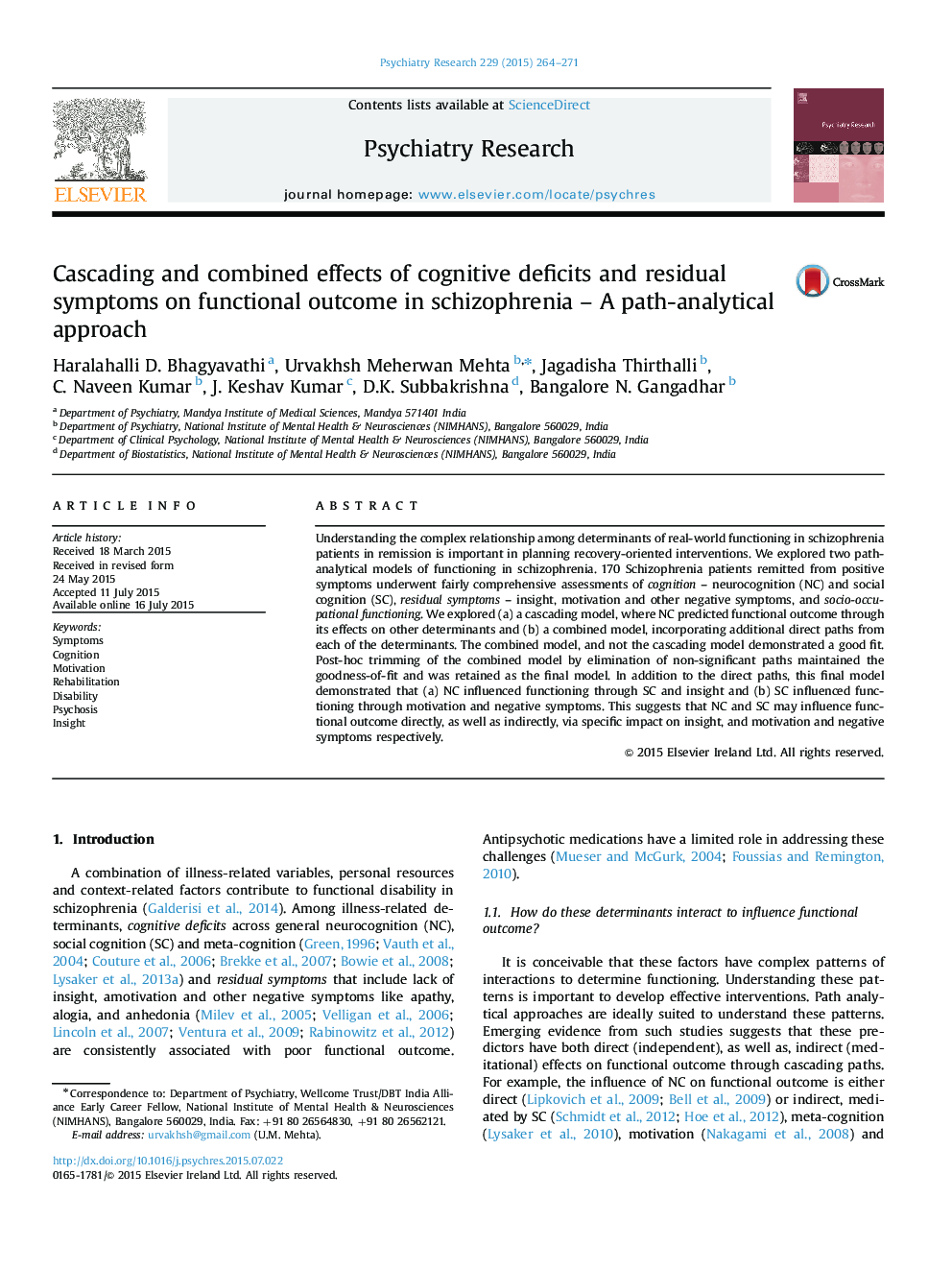| Article ID | Journal | Published Year | Pages | File Type |
|---|---|---|---|---|
| 6814039 | Psychiatry Research | 2015 | 8 Pages |
Abstract
Understanding the complex relationship among determinants of real-world functioning in schizophrenia patients in remission is important in planning recovery-oriented interventions. We explored two path-analytical models of functioning in schizophrenia. 170 Schizophrenia patients remitted from positive symptoms underwent fairly comprehensive assessments of cognition - neurocognition (NC) and social cognition (SC), residual symptoms - insight, motivation and other negative symptoms, and socio-occupational functioning. We explored (a) a cascading model, where NC predicted functional outcome through its effects on other determinants and (b) a combined model, incorporating additional direct paths from each of the determinants. The combined model, and not the cascading model demonstrated a good fit. Post-hoc trimming of the combined model by elimination of non-significant paths maintained the goodness-of-fit and was retained as the final model. In addition to the direct paths, this final model demonstrated that (a) NC influenced functioning through SC and insight and (b) SC influenced functioning through motivation and negative symptoms. This suggests that NC and SC may influence functional outcome directly, as well as indirectly, via specific impact on insight, and motivation and negative symptoms respectively.
Related Topics
Life Sciences
Neuroscience
Biological Psychiatry
Authors
Haralahalli D. Bhagyavathi, Urvakhsh Meherwan Mehta, Jagadisha Thirthalli, C. Naveen Kumar, J. Keshav Kumar, D.K. Subbakrishna, Bangalore N. Gangadhar,
